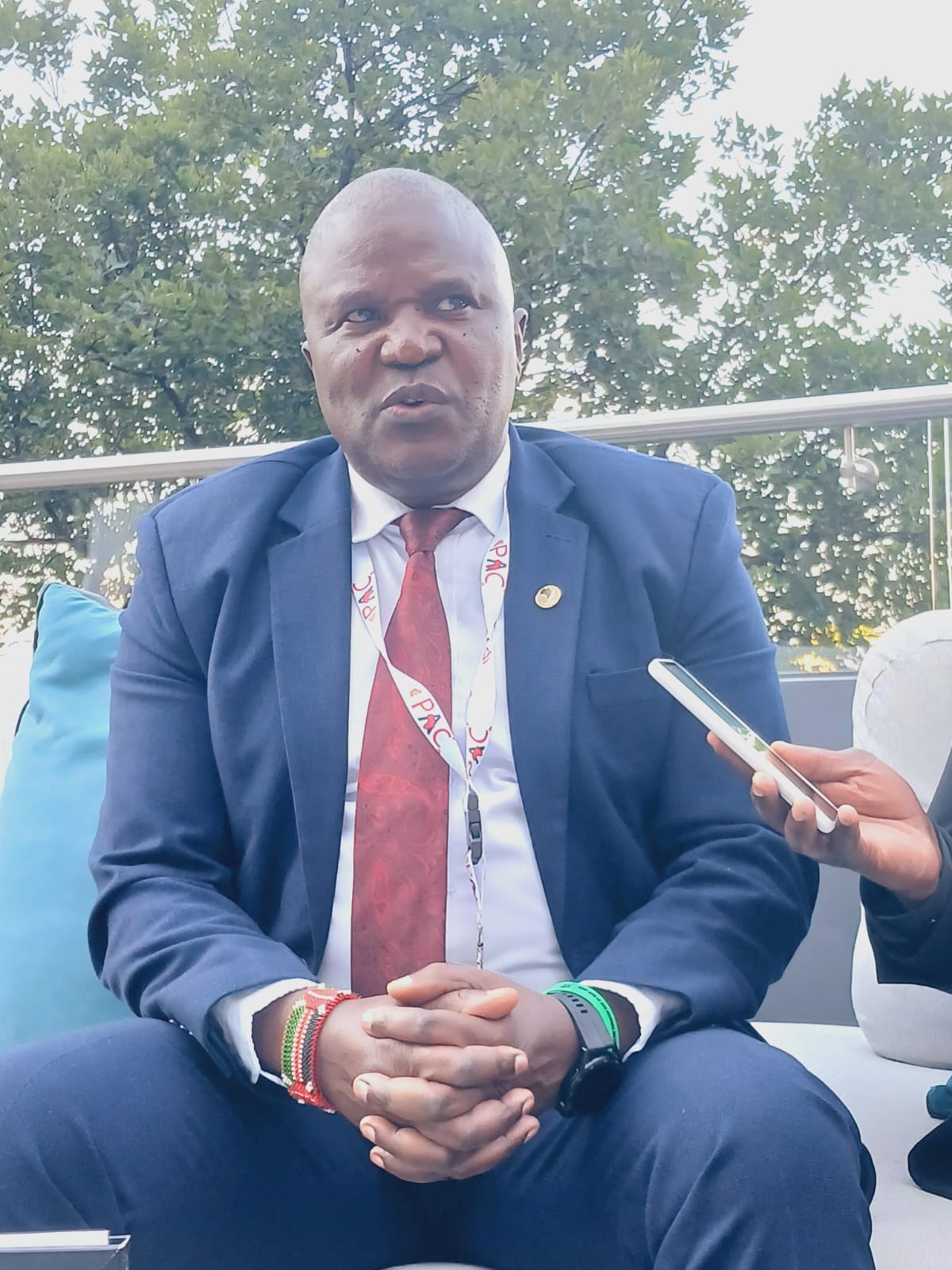
 National
Taxpayers
Association
CEO Patrick
Nyangweso
/HANDOUT
National
Taxpayers
Association
CEO Patrick
Nyangweso
/HANDOUTKenya could save up to Sh700 billion annually were it to adopt a digital customs enforcement and border automation, according to the National Taxpayers Association (NTA).
The Tax lobby group argues that Kenya is losing more money to corruption, trade mis-invoicing, and weak enforcement than it borrows from the IMF annually.
NTA Chief Executive Officer Patrick Nyangweso says this is a crisis driven not just by bad actors, but by starved oversight institutions and an underregulated private sector.
According to Nyangweso, the country’s continued reliance on manual systems and fragmented oversight has created vast loopholes for revenue loss.
“If we digitised border trade, we’d save more than we borrow from the IMF, the problem is we are not reading from the same script, for instance in the case of e government procurement, some officials still oppose digital systems that would expose inefficiencies and theft,” Nyangweso told the Star at sidelines of the Pan-African Conference on Illicit Financial Flows and Taxation held in Johannesburg.
He cited Rwanda’s e-procurement and Nigeria’s customs automation as models Kenya should emulate.
The conference hosted by Tax Justice Network Africa, which brought together policymakers, tax administrators, academics, civil society and development partners, is looking to take stock of the progress made in fighting capital flight from Africa in the past 10 years.
According to Nyangweso, Kenya bleeds over Sh1.5 trillion every year through illicit financial flows (IFFs), corruption and mis-invoicing.
“We lose Sh463 billion annually to corruption, Sh11.15 billion to illicit trade, and another Sh763 billion through trade mis-invoicing. Money that can be used to pay debt,” said Nyangweso.
He argues that Kenya’s budget shortfalls and rising debt have crippled the institutions meant to track and stop malicious investors from draining local resources.
“The Auditor-General, Ethics and Anti-Corruption Commission (EACC) and other oversight agencies are struggling to function under inadequate funding. Why create watchdogs you won’t feed? That’s how corruption thrives,” Nyangweso added.
The taxpayers' lobby points out that while corruption cases grow more sophisticated, its investigative and prosecutorial arms remain under-resourced. This, he warned, has allowed both public theft and private complicity to flourish unchecked.
Nyangweso did not spare corporate Kenya either. He accused private firms, especially exporters and importers, of driving trade mis-invoicing, a key enabler of IFFs.
“Government doesn’t export it’s private companies driving mis-invoicing,” he said. “They are the traitors in corruption.”
He noted that multinational trade structures often allow firms to under-declare export values or overprice imports, effectively shifting profits abroad and denying Kenya billions in tax revenue.
At the conference, leaders also discussed the UN Common Tax Policy Framework, which seeks to harmonise global tax rules by 2027 and reduce loopholes.
“We must learn from global best practice without losing our local context. A predictable tax environment allows investors to plan, industries to grow and citizens to trust the system.”
Nyangweso called for a “national dialogue on fiscal integrity,” bringing together government, private sector, and civil society to seal “the bleeding points” of the economy.
He warned that without coordinated reform, Kenya risks continued stagnation in industrialisation, youth unemployment and worsening public debt.
“We have the policies; what we lack is the will and the funding to enforce them.”














